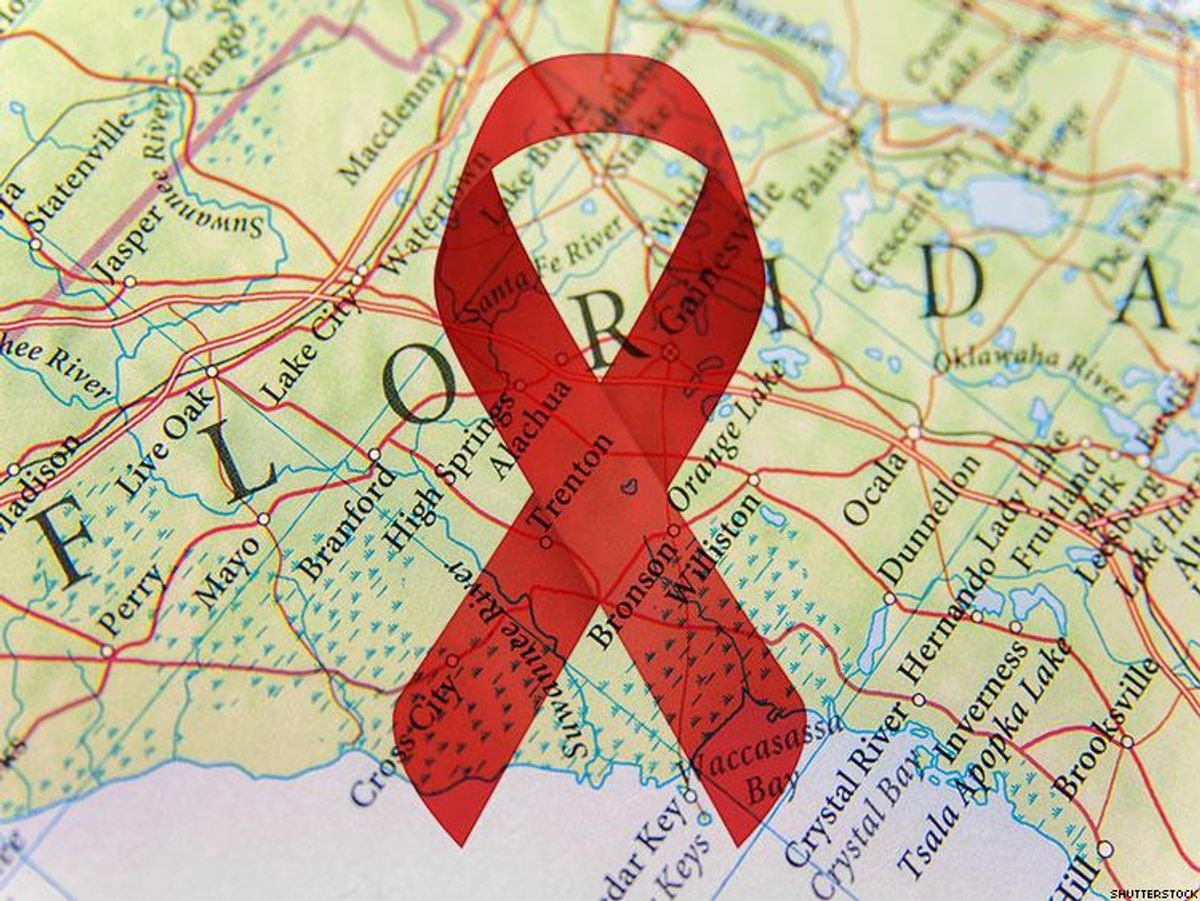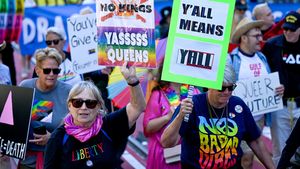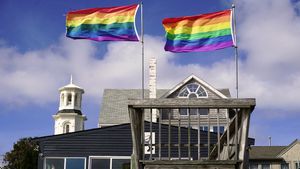A new initiative launched by Equality Florida aims to combat the spread of HIV through education, and maybe an update in statutes pertaining to draconian HIV criminalization laws, which do nothing but strengthen the stigma poz people and their allies fight so hard to diminish.
When it comes to new HIV diagnoses, Florida has outpaced any other state in America, and The HIV Advocacy Project hopes to educate the population about the truth of living with the virus today. Equality Florida hopes to convince lawmakers to update regulations that effectively expose individuals to criminal prosecution once heir status is known.
“It’s important to put a story and face to HIV,” says Alejandro Acosta, coordinator for the HIV Advocacy Project. To a degree, Acosta provides that face himself, having lived for years knowing he was HIV-positive. He chooses not to disclose the number of years in part because of the hefty risks that come with it. “I hesitate to tell that because of how people can use that information,” he explains. “I am a victim of those laws.”
People living with HIV can potentially face up to 30 years in prison for failing to disclose their status to a consensual partner before any sexual contact, even if transmission isn’t possible. As the laws stand, prosecutors can pursue convictions whether a partner contracts the virus or doesn’t.
Three years ago, one Palm Beach prosecutor arrested a Lake Worth man and sought 10 separate charges of failing to disclose his status with a girlfriend, then went to the press, asking members of the public to come forward if they’d had sex with the defendant in the past eight years.
Stories like this, Acosta says, do little to encourage people to get tested. That’s troubling, given that in 2016, 4,972 people were newly diagnosed in the state of Florida — more than any other state. The increase largely occurred in the state’s metropolitan areas, like Miami, Orlando, Tampa, Fort Lauderdale and Jacksonville.
Gay and bisexual men in the state continue to live at a higher risk of transmission, as do trans women of color. Equality Florida estimates another 20,250 individuals in the state are HIV-positive but don’t know for lack of testing.
Hannah Willard, senior policy director for Equality Florida, says it’s important that LGBTQ advocates not ignore the challenges facing poz individuals, adding, “HIV never stopped being an LGBTQ issue. It’s still an issue of racial and economic injustice.”
In the past, Equality Florida has been involved with the Florida HIV Justice Coalition, alongside The Sero Project, AIDS Healthcare Foundation, the American Civil Liberties Union of Florida, Lambda Legal, SAVE and the Southern Poverty Law Center. The organization’s work has been possible through an AIDS United Foundation grant.
Florida’s law requiring disclosure with partners dates back to 1997, when Florida legislators added HIV to a list of diseases that were criminal not to disclose. The list includes other sexually transmitted diseases like gonorrhea, herpes, and syphilis.
The 1997 law provides confidentiality in investigations to those reporting a violation, and it also ignores that individuals being treated for HIV today can contain the disease both to the point where it’s undetectable and not transmittable.
At this point, Acosta says the law does more to discourage people from finding out if they have HIV. He knows two acquaintances in Puerto Rico who died from AIDS complications last year. “Nobody should be dying of HIV these days,” he says.
Deaths like these still happen in large part because people don’t know they can treat the condition effectively today. Acosta says a big part of his job will be making sure the public knows how to control the transmission of the virus through proper health care.
“I don’t worry too much about my health. I visit the doctor every three months and with treatment my life expectancy is normal,” he says. “But I do worry about bad policy that makes access to treatment harder, discourages people from learning their status or creates laws that are outdated and based on fear and stigma, not science.”
Furthermore, Florida law doesn’t take into account biomedical advances, but Willard says that policy opinions of leaders across the political spectrum changes with effective lobbying, citing a bill introduced in the Florida Legislature last year that would have changed the law to apply only when there was a “substantial risk of transmission,” and the legislation won a unanimous vote in the Florida Senate’s Criminal Justice committee.
Unfortunately, bill died before a full vote, but Willard says it proved strong bipartisan support could be rallied for change. “I’m very optimistic and see forward movement in 2018,” she says.
But to truly stop the spread of HIV in Florida requires a shift of the social stigma attached. In a state with a large population of individuals originally from Puerto Rico, Haiti and other Caribbean nations, it also means challenging a number of prejudices.
“You have a huge number of Haitians, Jamaicans, Salvadorans with different cultural, religious and machismo issues,” Acosta says. “It’s a mix of things.” Acosta grew up in Puerto Rico, and attests that a positive status brings ridicule and public judgment on the island. “If you were HIV-positive, you were bitten by the dog,”
Subsequently, the nation has seen a rapid outbreak in new HIV diagnoses in recent years. And while Puerto Ricans enjoy US citizenship, immigrants from non-US territories could face deportation if they find themselves in legal crosshairs for failing to disclose their HIV status — one more disincentive to get tested.
To what degree is the law used to punish those with HIV?
That’s something Equality Florida wants to study further, Willard says. “We don’t yet know how these statutes are being used by law enforcement,” she says, while noting a California study that found prosecutors disproportionately applying a similar law to sex workers.
Acosta says poz individuals in Florida fear situations where a scorned lover could claim they weren’t told of their HIV status. Social stigma immediate casts suspicions on the people, even if there’s no evidence they withheld status, such as a 2009 case where a woman faced prosecution based on long-term relationships with multiple men and faced separate charges for each sexual encounter.
Acosta explains, “It goes against every policy for public health because it incentivizes not getting tested.”













































































